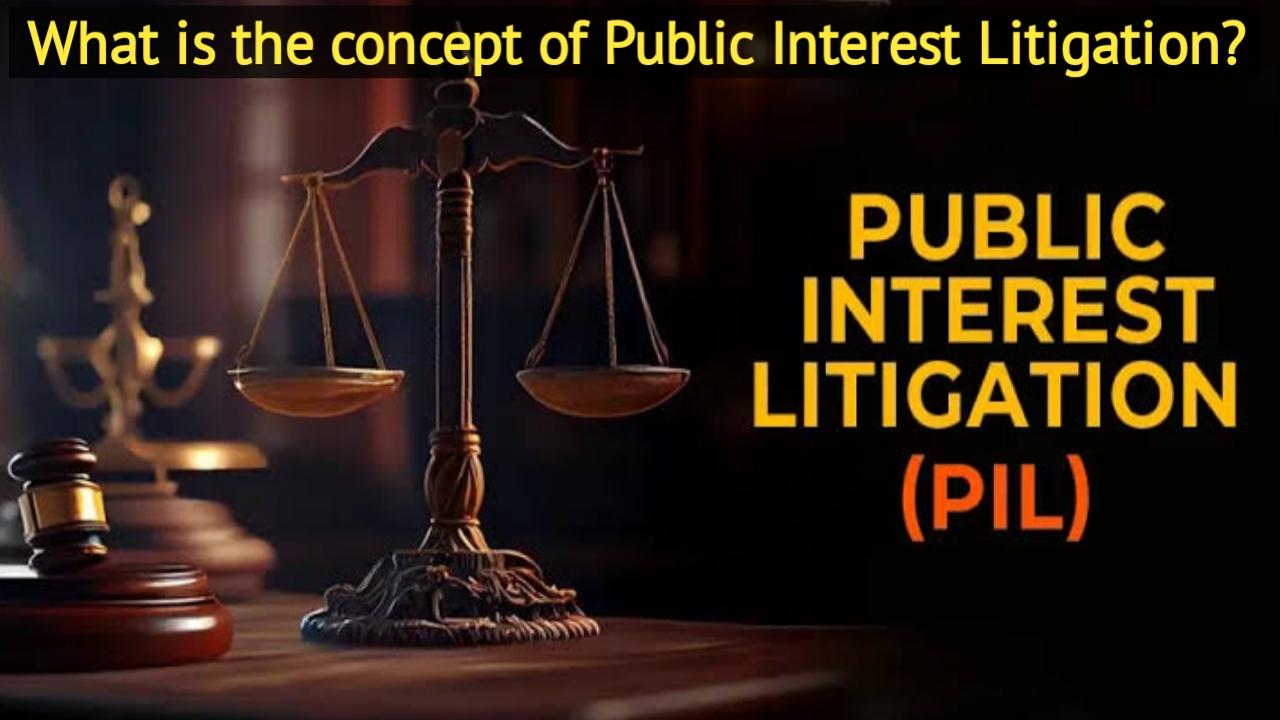Public interest litigation
What is the concept of Public Interest Litigation?
■ Public interest litigation (PIL) is the use of law to advance human rights and equality or to raise issues of wider public concern.
■ The concept of ‘Public Interest Litigation’ (PIL) is borrowed from American jurisprudence.
■ In Indian law, Public Interest Litigation (PIL) means filing a petition or case to protect public interest. It is a suit filed in a court of law not by the aggrieved party but by the court itself or some other private party. It is the power given by the courts to the public through judicial activism.
■ It can be filed only in the Supreme Court or the High Court.
■ This is different from a writ petition, which is filed by individuals or institutions for their own benefit, whereas a public interest litigation is filed for the benefit of the general public.
■ The concept of Public Interest Litigation is consistent with the principles enshrined in Article 39A of the Constitution of India so as to protect and extend social justice with the help of law.
■ Areas where PIL can be filed: Pollution. Terrorism, road safety, construction hazards etc.
In the opinion of former Attorney General Soli Sorabjee, 3 basic rules to control the misuse of PIL:
■ Dismissal of doubtful PIL with exemplary costs in appropriate cases.
■ In cases where important projects or socio-economic regulations are challenged after long delays, such petitions should be suspended.
■ If the PIL is ultimately dismissed, the PIL petitioner must make the court comply with strict conditions such as providing compensation or giving adequate undertaking to compensate for the loss.
Importance of Public interest litigation
■ Public interest litigation is an important means of social change and maintaining the rule of law and accelerating the balance between law and justice.
■ The basic objective of Public Interest Litigation is to make justice accessible or equitable to the poor and marginalized people. It democratizes access to justice for all.
■ It helps in judicial monitoring of state institutions like prisons, asylums, protective homes etc.
■ It is an important tool to implement the concept of judicial review.
Issues Related to Public interest litigation
■ Abuse: The number of cases pending in courts is already high and abuse of PILs is increasing. In the year 2010, the Supreme Court had expressed great displeasure over PILs related to personal or irrelevant matters and had issued some guidelines to the courts to accept PILs.
■ Competing rights issues: Public interest litigation actions can sometimes give rise to competing rights issues. For example, when a court orders the closure of a polluting industry, the interests of the workers and their families who are deprived of their livelihood cannot be taken into account by the court.
■ Delay: PILs related to exploited and deprived groups are pending for many years. Excessive delay in disposal of PIL cases may render many major decisions of only thematic value.
■ Judicial overreach: There may be cases of judicial overreach by the judiciary in the process of solving socio-economic or environmental problems through public interest litigation.






